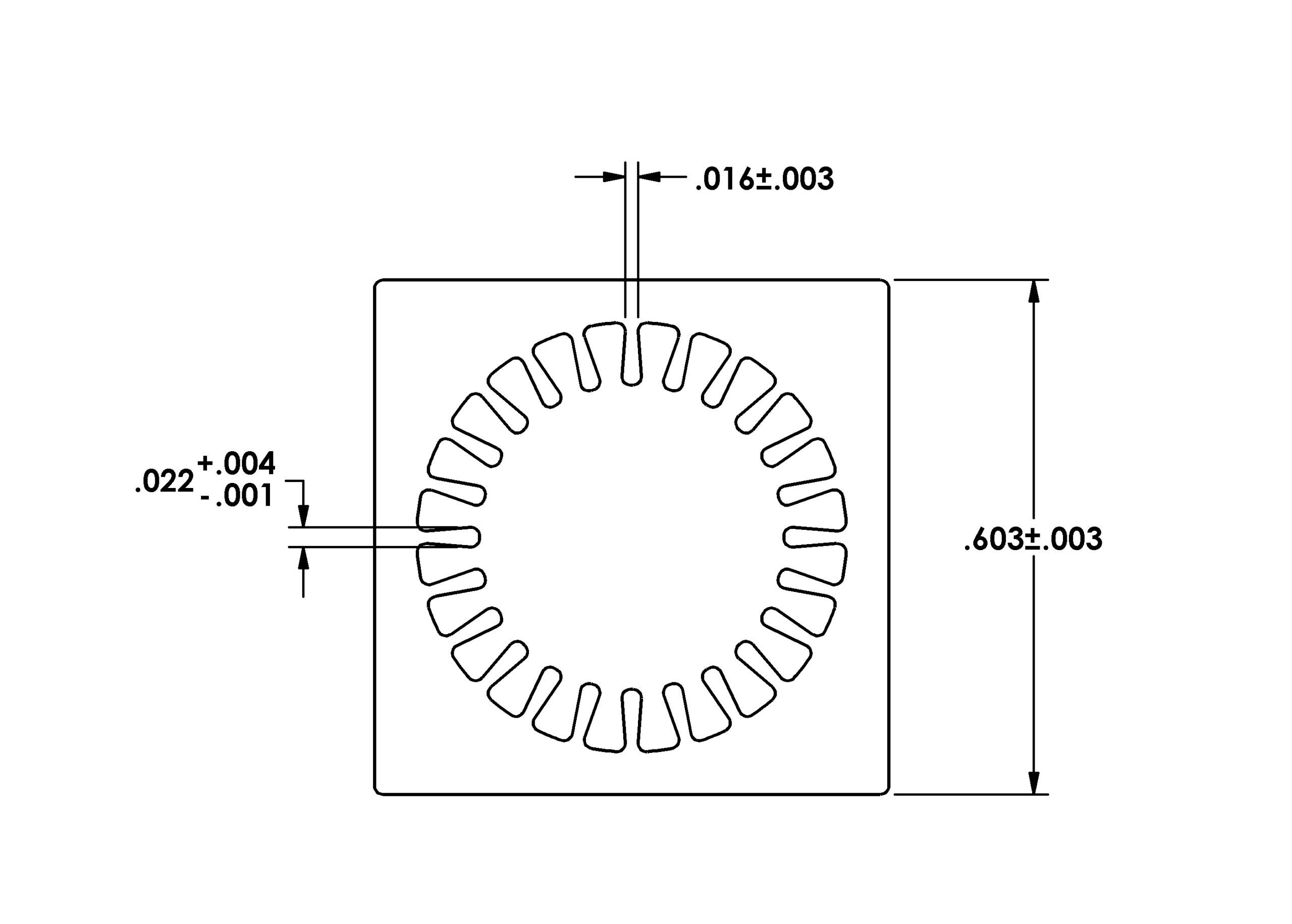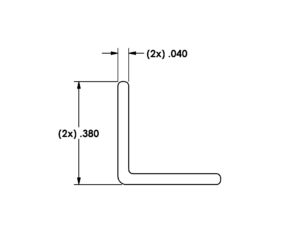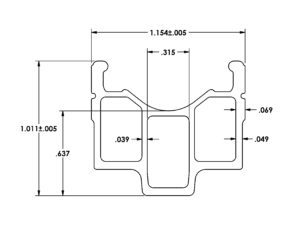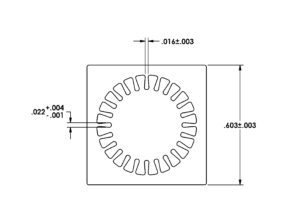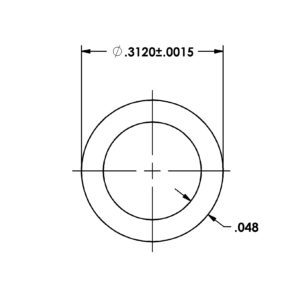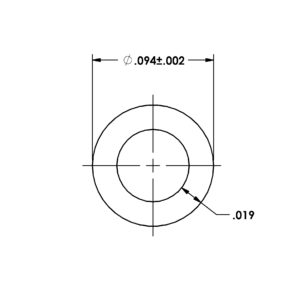Many customers contact Profile Precision Extrusions with an aluminum tube or extruded shape they have designed but are unsure what alloy and temper to select. We touch on alloys and tempers briefly on our Design Tips webpage, but we thought some additional details on the selection process would be helpful.
We primarily extrude 6061 and 6063 with the major alloying elements for the 6xxx alloy family being magnesium and silicon. The alloys are known for their relative ease of extrusion, medium strength, and good corrosion resistance. A significant percentage of the 5 billion lb. annual aluminum extrusion market in North America consists of 6061 and 6063.
6061-T6 is the strongest alloy we regularly extrude. It’s minimum yield strength is 35.0 ksi. In addition to strength, 6061 machines very well and has a good response to anodizing. 6061 aluminum extrusions range from simple structural designs to complex multi-hollow shapes. 6061 extruded shapes and tubes are used in a wide variety of applications from aircraft interior structural components, to bike rims and disposable medical device components. Our minimum wall thickness is .030”.
6063-T6 (and -T5) is a medium strength alloy. Its minimum yield strength is 25.0 ks and it’s rated “C” for machinability. It has a very good anodize response and is easier to extrude than 6061 so the parts can have thinner walls and more complex designs. Our minimum wall thickness is .025”. Designers have used 6063-T5 in medical device components like ear tubes for stethoscopes, linear rail extrusions, and cooling systems for satellites.
3003 is a low strength alloy and the major alloying element for the 3xxx alloys is manganese. Its minimum yield strength 5.0 ksi and machines poorly and the anodize response is poor as well. It is the easiest alloy for us to extrude. Our minimum wall thickness is .020”. We extrude very thin walled shapes in 3003. Designers like it for its malleability and high heat transfer properties. 3003 extrusions are used in cooling systems for electric cars and radiator tubing in gasoline powered vehicles.
Here is a summary of the alloys and tempers we produce regularly:
| Alloy | Temper | Minimum Yield Strength – ksi | Machinability | Formability |
| 6061 | T6 | 35 | B | C |
| O | 16 (max.) | D | A | |
| 6063 | T6 | 25 | C | C |
| T5 | 16 | C | B | |
| 3003 | H112 | 5 | E | A |
Ratings: A = very good; E = very poor Aluminum Standards & Data 2013
Hopefully this was helpful to you and your decision making process when it comes to aluminum alloys and tempers. If you still have questions or would like more information, contact us with your design requirements. We’d be happy to make suggestions if you are unsure of the alloy and temper combination that will work best for your unique application.

